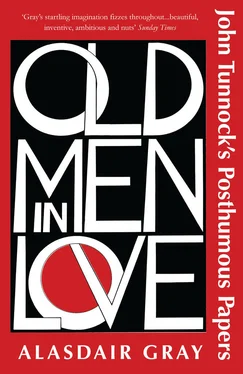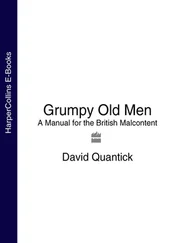Mrs Prince arrived in an irritable mood that she hid from her son but not from her daughter-in-law. She spoke severely to housemaid and laundry-maid, dismissed the cook, hired in her place another local woman and severely lectured her also before returning to Bath. For a while the house was managed a little better, though not much better. Martha still had cause for tears, Henry for sighs and silent prayers, and his sufferings had a more than domestic cause. Despite marriage he found Charlinch an even more miserable place than London where, a lonely medical student, his fastidious nature had excluded him from the rude conviviality of social equals. At Lampeter he had made friends and visited people who recognized his spiritual authority: Charlinch was a whole parish of souls to be saved, yet he could persuade none of their deadly peril.
The Anglican prayer book, printed by Royal Command, dictated the church services in words carefully composed to exclude radical politics and personal remarks. Only the sermon gave a chance of impressive speech, and Henry failed to impress. His pulpit overlooked a floor boxed into pews rented by the wealthiest and most respected local families, each box with its own little door. Labourers and servants sat on benches between or behind these. There was a gallery for singers and two parishioners who played a cornet and a bassoon. When Henry announced the sermon’s text in his clear sweet voice he saw his listeners compose themselves for a state resembling slumber, even if they did not close their eyes. He could have wakened the nearest at once by talking straight down to them, but his words must reach everyone including many who were more haggard, worse dressed and (when their mouths opened for responses and hymns) more gap-toothed than any congregation he had seen. Words he uttered with passionate conviction had no visible effect on anyone.
That Dr Ollivant had foreseen this was not consoling. The rectory study had many bound sermons but, “I will not mouth the words of dead men.” Henry told himself, glaring at them. He knelt and begged God to let him speak with the simplicity of a little child, and the simple words came, but had no effect, even when spoken in the parishioners’ homes. Nobody in Charlinch was of higher social standing than Henry so the farmers’ wives were at first delighted with his visits. They served him afternoon tea and when asked about the state of their souls assured him that these were quite all right. When he told them this was unlikely and insisted on more heart-felt answers they turned resentful or embarrassed. Most took it as an insult that he wished to confer with their servants, and when he said poorer folk also had souls to be saved the faces of their employers indicated doubt. In Welsh Lampeter he had enjoyed several passionate dialogues with sick or dying people and, compared with them, the Somerset natives seemed pagan. “If God don’t want my soul after all he’s put me through,” said an old labourer, crippled by arthritis and lying between blankets stained by his bed sores, “He may do without it.”
“Hell fire! Hell fire!” whispered Henry.
“Can’t be worse than this,” said the man, “but give me a sup of gin or brandy and I’ll gladly hear you tell me all about hell fire till the cows come home.”
The school children could chant the Lord’s Prayer and parts of the Shorter Catechism in unison, but no matter how intensely he lectured and questioned them they answered with monosyllables or giggles or dumb grins. At length, having prayed to God for guidance and receiving assurance that God wished this, Henry told the schoolteacher he was abandoning her pupils until they asked for him. He visited two consumptive little girls in their home until their mother told him to stop frightening them. When he ignored her she fetched her husband from a nearby field who expelled Henry with threats to fling him out. Henry told the man’s employer, suggesting the labourer might allow Christ’s ministry if threatened with dismissal. The farmer said, “I couldn’t do that sir. He may be stiff-necked but he’s an honest worker.”
“I do not ask you to dismiss him but to threaten him with dismissal.”
“Too risky, sir. He’s so stiff-necked he might take offence and leave me, and bein’ widely known as a honest good worker he’d have no trouble gettin’ employment elsewhere.”
Henry’s only happiness now was in writing to his Lampeter Brethren, some still at college, some of them curates like himself. His letters asked searching questions about the state of their souls, discussed their replies in detail, contained prayers and exhortations applicable to their weakness and troubles. He mentioned the sad state of his parishioners but not his own unhappy state. One of the Brethren, inspired and consoled by his letters, suggested making a book of them. Henry borrowed back the best, copied them out with improvements, raised money by subscriptions from the Brethren and had them printed in Bristol. Copies posted to Church of England magazines were kindly reviewed. This modest fame did not lessen his grief at the state of Charlinch parish. Martha was increasingly troubled by backaches with hot and cold flushes, swollen limbs, and constipation alternating with diarrhoea. Henry prayed to God that these were not symptoms of incurable dropsy. A doctor summoned from Bridgwater comforted him slightly by diagnosing sub-acute dropsy, and prescribing a strict diet, laudanum drops and rest. Martha returned to stay with his mother in Widdicombe Crescent until her health improved, but it never improved. Henry remained in Charlinch to hope, pray, correspond with the Brethren and conduct services that seemed spiritually fruitless.
In the fourteenth month of his curacy came a letter postmarked Ventnor in the Isle of Wight. It said: Dear Mr Henry James Prince, or if you will forgive this impertinence, Dear BROTHER Henry James Prince, I must see you as soon as possible since no merely written language can express my feelings, my gratitude. I, my wife and sister are coming with all possible haste to visit you in the rectory, our old family home. Expect us on the evening of the day after you receive this epistle. Ever, My Very Dear Sir,
Yours in the Lord,
Sam Starky.
This, from the rector Henry had been told he would probably never see, was encouraging. He ordered fires lit in the four main bedrooms, two of which had stood empty since Martha left. He ordered sheets and blankets to be aired, beds to be made, the house thoroughly cleaned for the following day. Though he had never reproved the servants they were slightly in awe of him, even more in awe of the returning rector whose father they remembered and who was nephew of a Lord. By the following afternoon the rectory was in a cleaner, neater state than Henry had ever seen. He watched the maid set a tea table, suggested improvements, retired to his study. For a while he stood at a window allowing a view of the crossroads. After two or three carriages had passed he sat down and tried to concentrate on a vague but inspiring chapter by the German psalmist, Gerhard Tersteegen. Only on hearing approaching hoof beats did he go to the entrance hall and stand, hands folded meekly before him, waiting for the housemaid to open the front door. She did, and when three people entered he bowed, saying softly, “Welcome.”
“Hello!” said the foremost visitor, removing his hat and extending a hand, “Sam Starky! Are you indeed —?”
Henry murmured, “Henry Prince,” and shook the slightly moist hand of a man who seemed breathless and excited.
Starky was tall and not much older than Henry and wore dark expensive clothes of fashionable cut, only a white neckcloth suggesting his clerical status. His handsome face had the nobility of a marble bust, perhaps because it was so pale. His manner was excited but oddly evasive. He clasped Henry’s hand longer than usual without looking straight at his face. Henry saw that here was one who knew he needed guidance. “This is my belovéd wife,” said Starky gesturing to a woman who appeared to be all a prosperous and respected husband in those days could wish: pretty, well dressed, submissive and slightly alarmed at meeting someone new. Henry bowed to her. “And here is my dear sister Julia,” said Starky. “We find in her a tower of strength.”
Читать дальше












